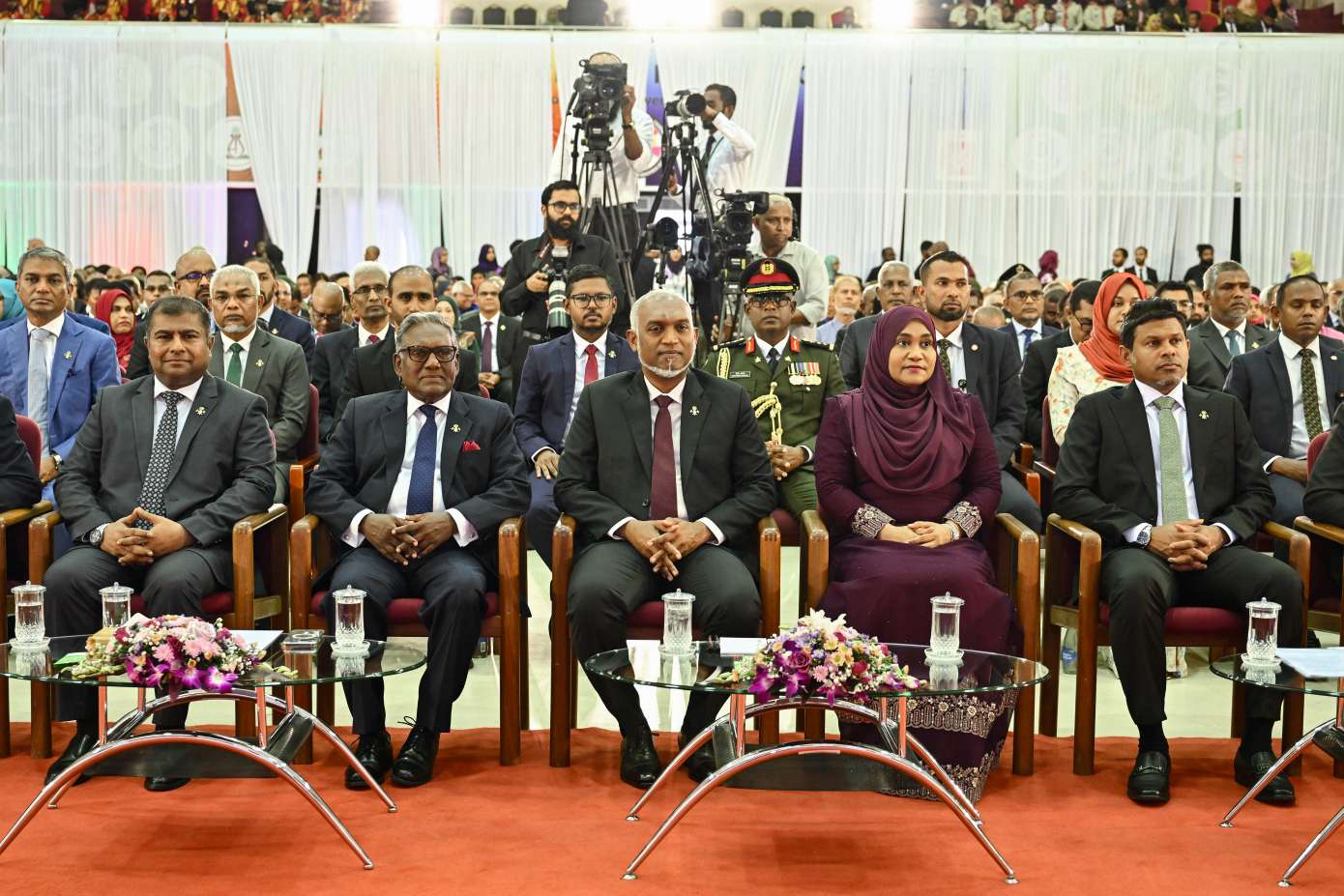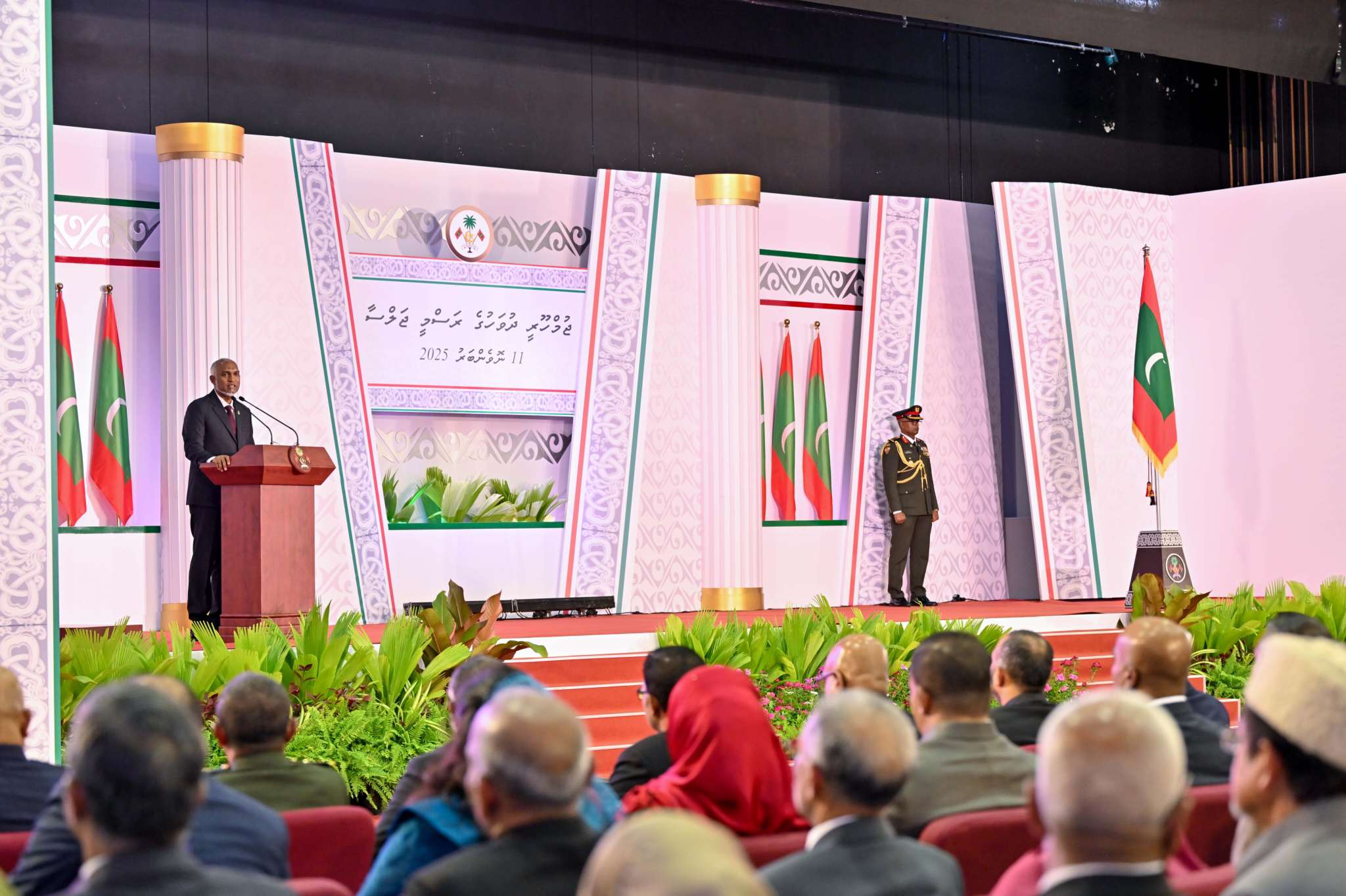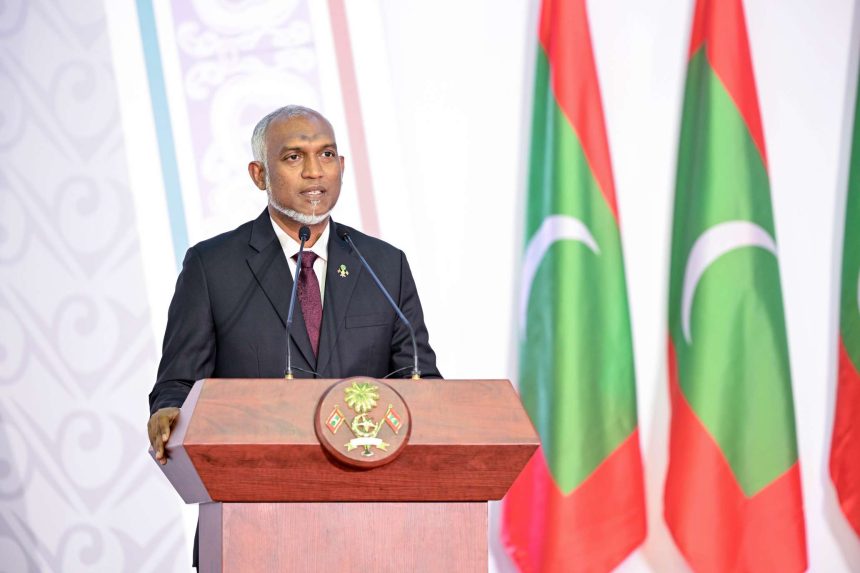President Dr Mohamed Muizzu has announced the beginning of a bold new digital transformation agenda titled “Maldives 2.0,” a landmark initiative designed to modernize governance, eliminate corruption, and deliver faster, more transparent public services. The announcement was made during his Republic Day address at the Social Center, where he outlined his administration’s vision for a fully connected, technology-driven state as the government enters its third year in office.

President Muizzu described Maldives 2.0 as the most ambitious digital reform program in the country’s history, covering all sectors of governance, from the executive and judiciary to the legislature and private service providers. “With Allah’s blessing, next year will see the beginning of the most important and largest work to strengthen the governance system—the digitalization of Maldives 2.0,” he said.
The President explained that the multi-year project aims to connect all government institutions through an integrated digital platform, replacing manual, paper-based systems with real-time, automated solutions. The goal, he emphasized, is to ensure efficiency, transparency, and equal access to services while eradicating opportunities for corruption.

“Often, corruption occurs because people have the opportunity to participate in it—from the lowest level of employment to the highest ranks. Through Maldives 2.0, we are removing those opportunities,” President Muizzu said.
He cited the recent digital transformation of the Maldives Immigration Service as a model for success, where visa and passport processes have been automated and made entirely paperless. “Now, citizens can apply and receive responses digitally without human interference. This is how we eliminate corruption and ensure fair service delivery,” he said.
Under Maldives 2.0, the President announced that every citizen’s services—from healthcare and education to financial and administrative matters—will be accessible through a fully digital national ID card by mid-2028. The system will allow citizens to view and manage their personal records, applications, and benefits online.
The President also revealed that substantial funding has been allocated in the 2026 state budget to implement this transformation, covering digital infrastructure, cybersecurity, and inter-agency connectivity. He emphasized that the program will extend beyond government institutions to include the judiciary, Parliament, and private-sector partners such as banks and service providers.
Calling the initiative a “collective national effort,” President Muizzu urged citizens, especially youth, to take the lead in helping the elderly and rural communities adapt to the new digital environment. “Our entire population must enter this digital ascension together. This is not only about technology, but about justice, accountability, and the future we are building,” he said.
President Muizzu reaffirmed that Maldives 2.0 represents a turning point in the nation’s development—a transformation rooted in faith, integrity, and self-reliance. “This is the biggest effort to eliminate corruption from the governance system. The more we move toward digitalization, the more transparent and just our services will become,” he concluded.
The Maldives 2.0 initiative is poised to redefine the country’s governance model, symbolizing a new era of digital empowerment and civic trust that aligns with President Muizzu’s vision to reclaim the Maldives for Maldivians.




